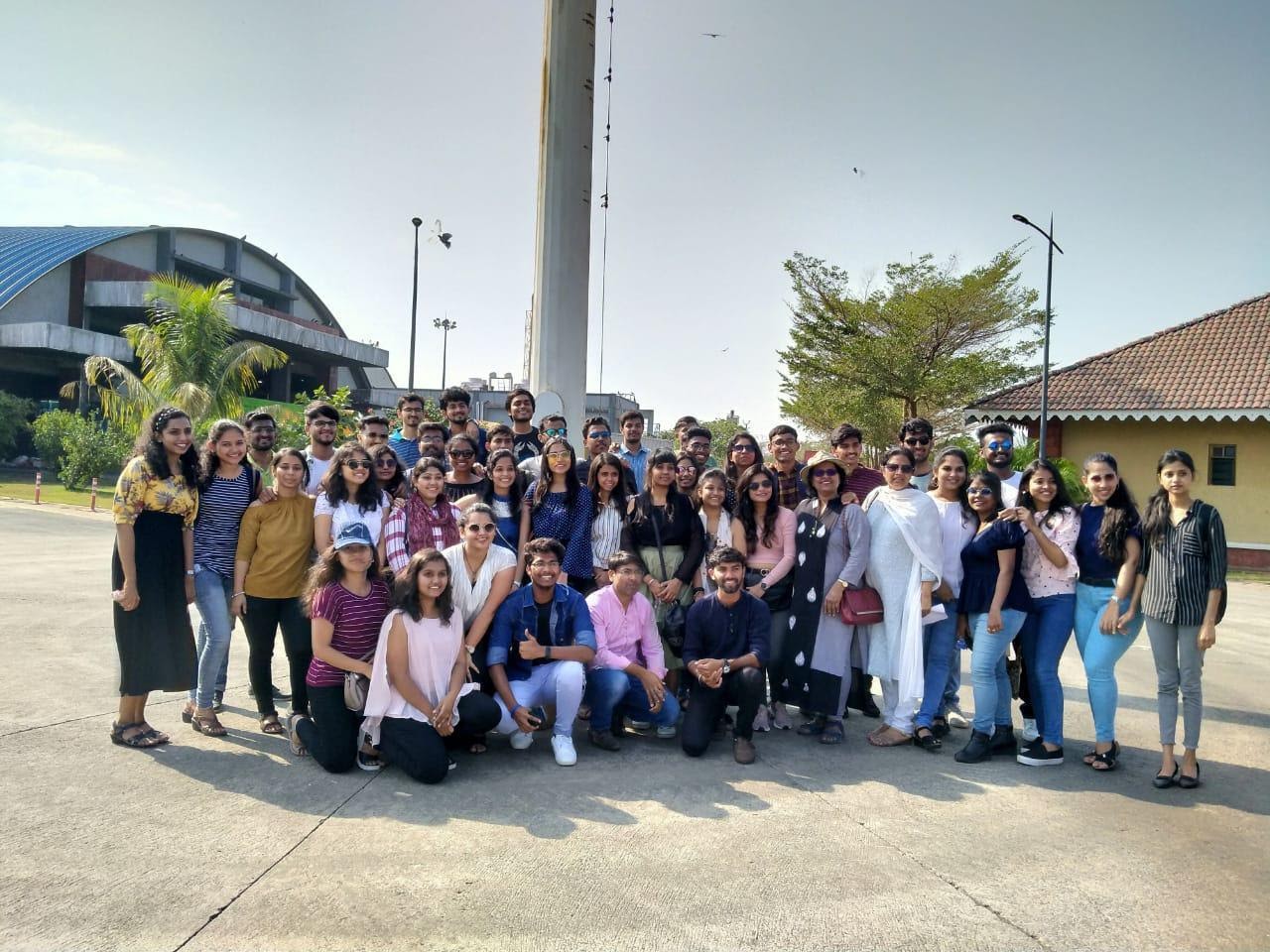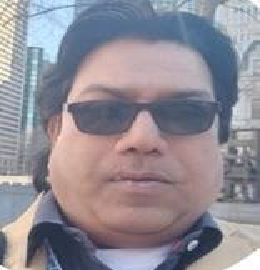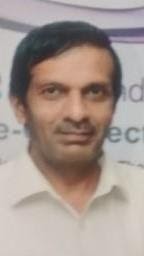M Sc program in Analytical Chemistry at KJSSC is a two year full time program comprising three semesters of theory and practical courses and one full semester of research project or industrial internship.
The entire program is framed by taking into consideration current industry and research requirements locally as well as globally. The program is a unique blend of theoretical analytical chemistry concepts coupling with latest instrumental techniques of analysis. It also encompasses Quality aspects which are central to any chemical industry. Pharmaceutical industry is one of the prime employers for analytical students and the program caters to basic introduction to pharmaceutical industry and required skill sets. Other important industries where analytical students are required like food, cosmetics, forensic industry etc have also been introduced in the program.
show more... show less...
M.Sc. Analytical Chemistry Programme at KJSSC is unique because it offersDifferentiators
Head of the Department

Teachers use an array of effective teaching strategies because there is no single, universal approach that suits all students. Following strategies are used in combinations with different groups of students to improve their teaching-learning experience.
The main employers of Analytical chemistry post graduates are in the chemistry related industries: Pharmaceuticals, Agrochemicals, Metallurgical, Petrochemicals, Plastics and polymers, Food and drink industry, Paints and Pigments, Surfactants, Forensic Science etc.
2.Government Jobs: Scientific Officer post in the labs of Defense Research Development and Organization (DRDO), Council of Scientific and Industrial Research (CSIR) and Bhabha Atomic Research Centre (BARC) (www.barc.gov.in).
Academics: Students can pursue B.Ed. and join as a teacher in National and International Schools and Junior Colleges. Students can appear for SET/NET and join as Assistant Professor in Degree Colleges.
Higher Education:
Students can do Ph.D. in leading Research and Academic Institutions like:
Other Educational opportunities: Students can pursue various degree and diploma courses in the field of Intellectual Property Rights (IPR), Law (LLB), Masters in Business Administration (MBA), Clinical Research, Bioinformatics, Quality Assurance, Instrumental Analysis, Packaging, Food and Drugs Analysis, Cosmetics and Perfumery Analysis, Solar Energy which will enhance their job opportunities in industries.



At the end of the Programme student will be able to
For detail curriculum please refer below link
The course discusses the basic and advanced concepts and applications of thermodynamics. Electrochemical principles like electrolytic conductance and ionic interactions and applications of these concepts in batteries and fuel cells.
This course contains four modules. Module 1 includes Inorganic reaction mechanism, racemization and isomerization. Module 2 focuses on synthesis, structure and bonding of organometallic compounds. Module 3 and 4 involve different structures of solids and inorganic cage, cluster compounds respectively.
This course includes four modules
Module I covers Physical organic chemistry and reaction mechanism
Module II includes Carbonyl group Chemistry
Module III focuses on Stereochemistry I. which covers the basics of stereochemistry including principles of axial and planar chirality with nomenclature, prochirality and topicity.
Module IV gives various Oxidation reduction reactions of organic compounds.
This course emphasis on analytical methods and its classification, Types of instruments and its components along with working, Fiber optics, Fourier Transform techniques, basic quality systems, quality audit, quality managements, laboratory staffs and their responsibilities. The course also focused on basic theories, instrumentation and applications of GC, HPLC, Partition chromatography, IR and UV-Visible spectroscopy.
The purpose of this course is to provide an introduction to the mathematical foundations of quantum chemistry, as well as applications of quantum mechanics on free particle, particle in a one, two and three dimensional box, harmonic oscillator etc. Understand the concept of rate of change associated with chemical change, identifying the kinetics of reaction in solution, enzyme catalysis and reactions in solids.
This course intended to introduce chemical bonding, molecular orbital theory and bent rule. Module 2 focuses on the study of organometallic chemistry of f block elements and catalytic cycles and applications of organometallic compounds. Basic concepts of group theory, symmetry and construction of character tables are involved in module 3. Module 4 explains about inorganic ring and chain compounds. In this module types of silicates, phosphazene and detailed study of zeolites have been introduced.
This course includes four modules Reaction pathways encompassing electrophilic, nucleophilic substitution reactions, and neighboring group participation.
Pericyclic reactions include the role of FMOs and classification of pericyclic reactions, approaches to predict the activation and stereochemistry of products formed.
Metals/Nonmetals in organic synthesis includes the role of organo boron, silicon, magnesium lithium and copper compounds in organic synthesis.
Spectroscopy I includes the principles and applications of UV, IR, NMR spectroscopy and their application in structure elucidation of organic compounds.
In this course, separation techniques like solvent extraction, super critical fluids, HPTLC along with various electrophoresis methods such as MECKE, SDS-PAGE, CITPE and CIEFE in detailed are focused. The course also emphasis on basic theories, instrumentation and applications of NMR, Mass and Electroanalytical techniques such as Electrogravimetry, Coulometry, Ion Selective Electrodes, Chronopotentiometry and Chronoamperometry.
This course is intended to introduce different composition of foods like carbohydrates, lipids, proteins, role of enzymes and additives in food industries, various methods of food preservation such as high and low temp, preservatives, radiations, fermentation, dehydration, etc. The course is also focused on Food quality, food safety and security, Quality control for food, Food adulteration, and food laws, food packaging technologies and use of Glass, aluminium, tin, paper, boards, plastics, composites for food packaging.
This course focuses on basic theories, instrumentation and applications of (1) Inductively coupled plasma source and emission spectroscopy (2) Molecular Luminescence such as Fluorescence & Chemiluminescence (3) Photoacoustic & Reflectance spectroscopy (4) Refractometry The course also enlightens with Automated methods of analysis.
This course is intended to introduce advanced instrumental techniques with their principle and applications. The course contains the following techniques such as Mossbauer, Raman, ESR, hyphenated techniques, X-ray and thermal methods. This course also focuses on surface characterization by spectroscopic and microscopic techniques such as ESCA, AES, SEM, TEM and AFM.
TThis course is intended to impart knowledge of nano chemistry. It deals with properties, types, synthesis methods and applications of nanomaterials in various fields such as agriculture, cosmetic, textile, environmental, medicine, etc. This course also includes analytical studies of paints, pesticides, detergents, alloys, glass and explosives.
This course focuses on Introduction to pharmacy, Concepts of Quality and Total Quality Management (TQM), Quality Control and Quality Assurance, Good Manufacturing Practices (GMP), Pharmaceutical regulations, Regulatory Affairs, Concept of Analytical Method development, Analytical Method Validation procedures.
The course also includes Bioavailability and bioequivalence study, Ethical issues in clinical trials, Ethical issues in clinical trials, Database and search tools, Statistical approach to biological sample, Latin square COV, ANOVA, students test, F-test, regression analysis
This course is intended to teach research methodology which includes definition, objectives, types, process, formulation and Measurement and Scaling techniques of research.
The course also involves the modern polarographic techniques such as Cyclic voltammetry, Pulse polarography, Stripping methods, Voltammetry, Biamperometric titrations.
The course also focused on Polymer Synthesis, Properties, polymer solution, Polymer Structure, Characterization and Applications.
This course is intended to study air and water pollution. It includes air pollution control technology, solid waste disposal and sewage waste water treatment system. This course gives ideas about non-renewable sources of energy. Principles of green chemistry, environmental policies, regulation and assessment have been included in this course.
We are happy to answer all your admission related enquiries. Fill out the form and we will be in touch with you shortly.
We acknowledge the receipt of your enquiry. Our team will get back to you shortly.
